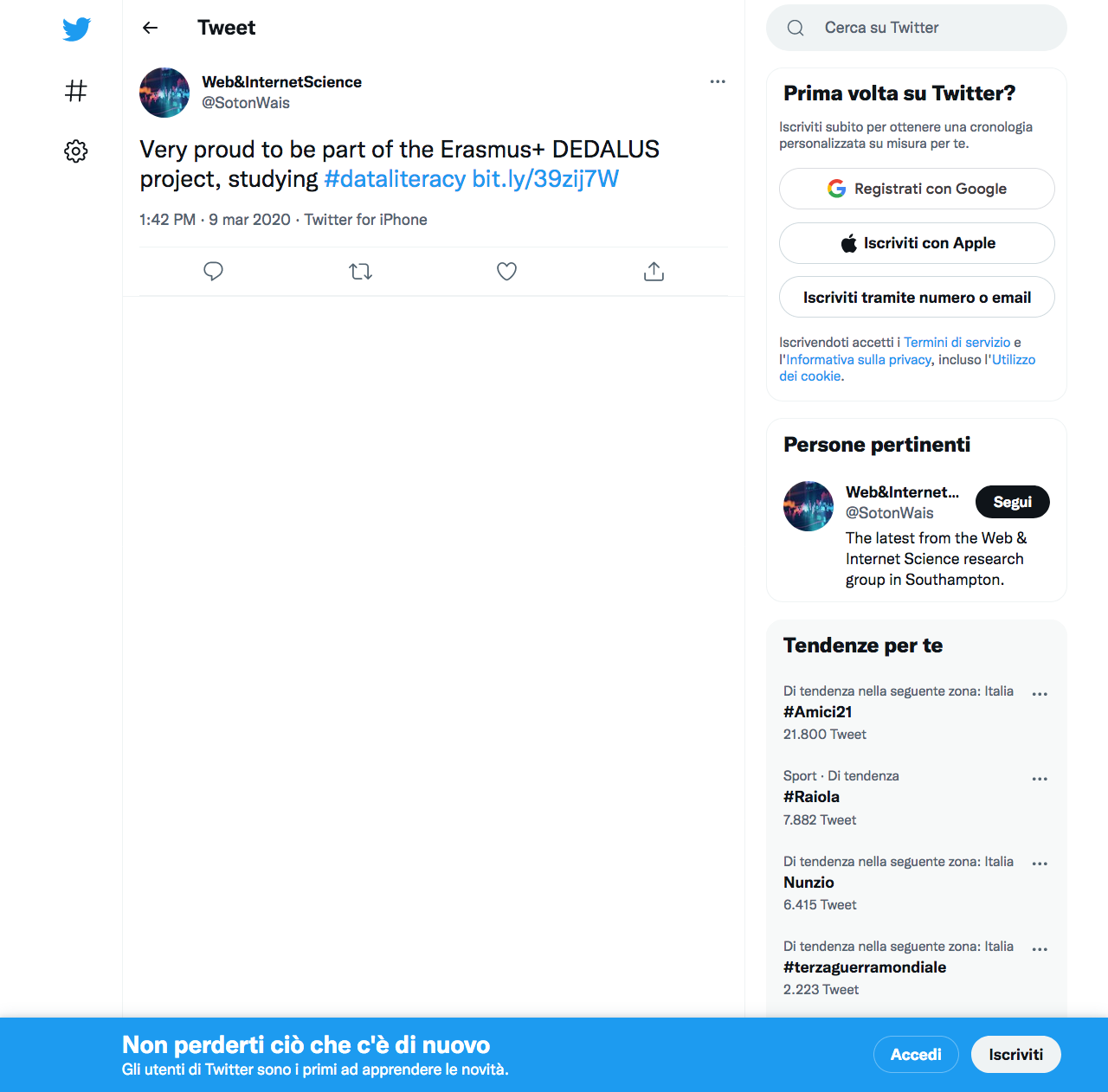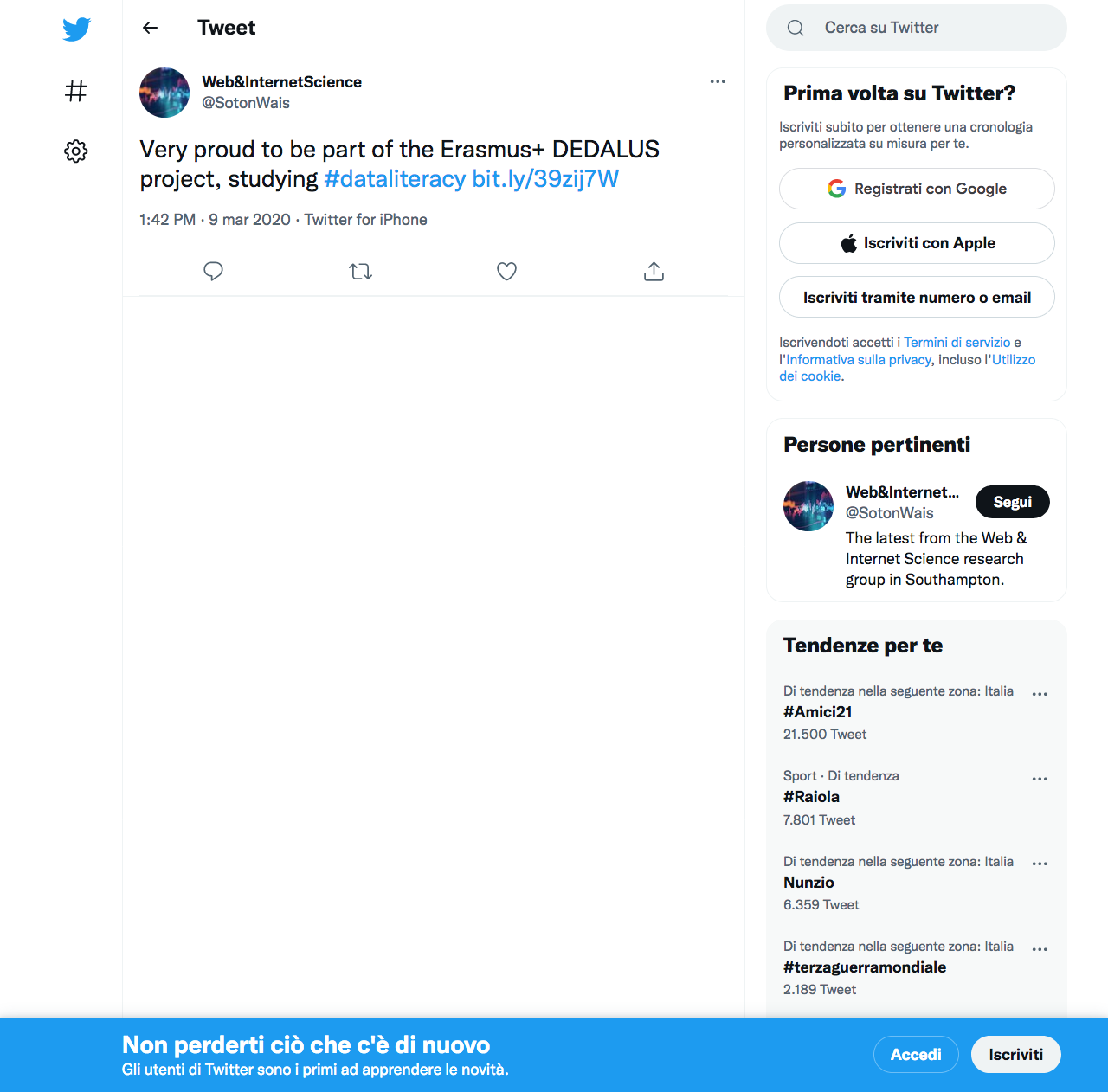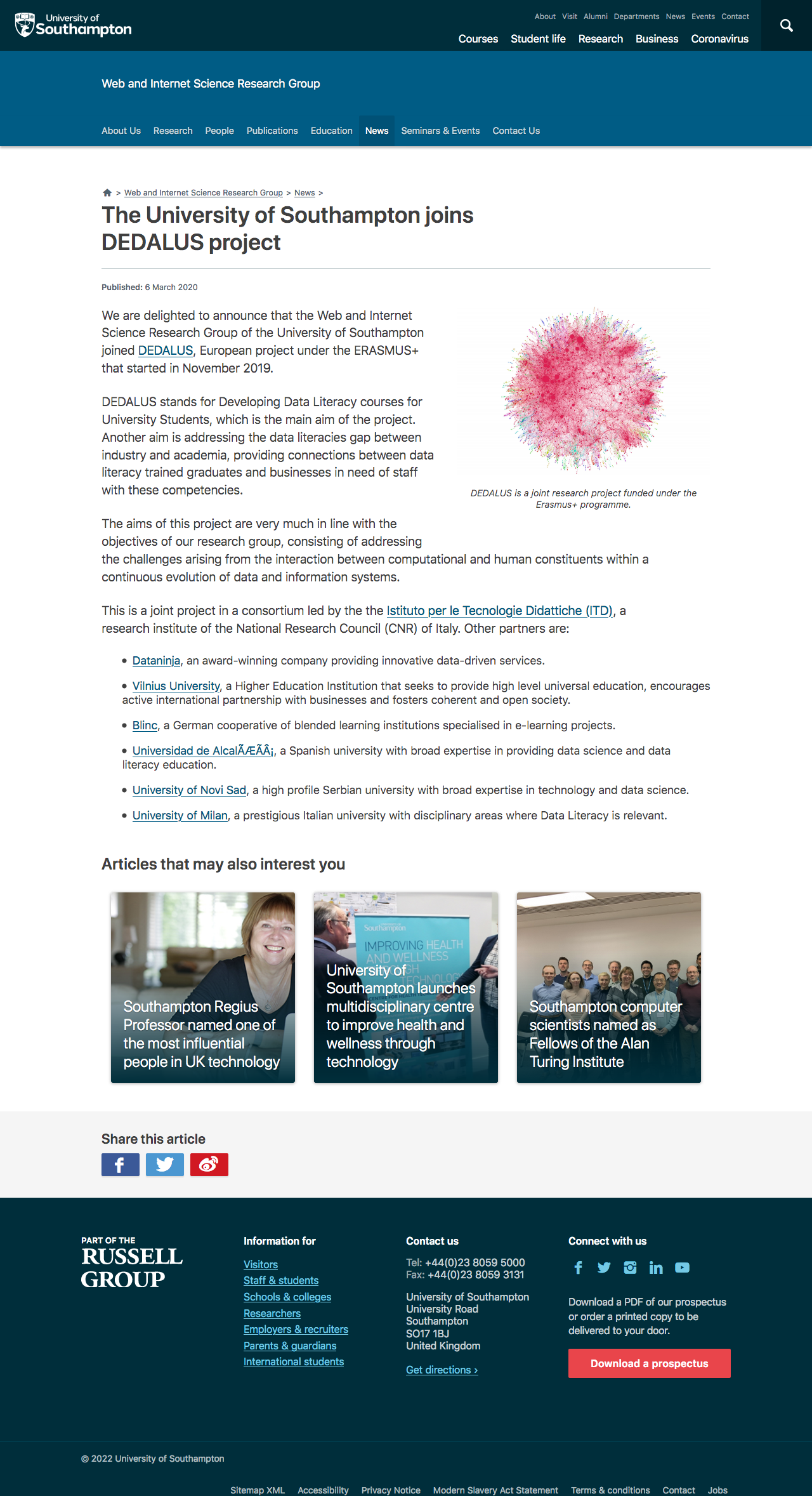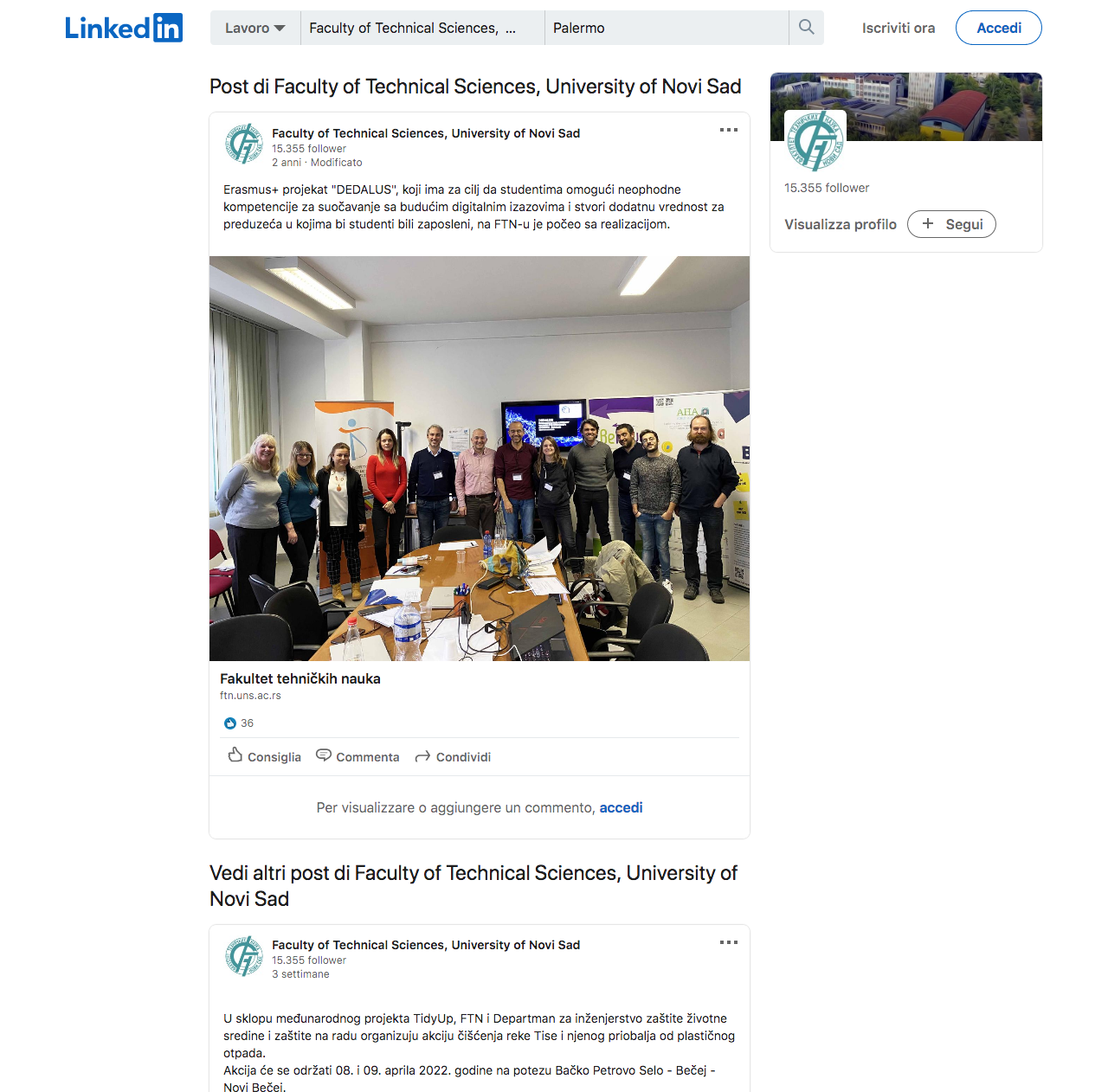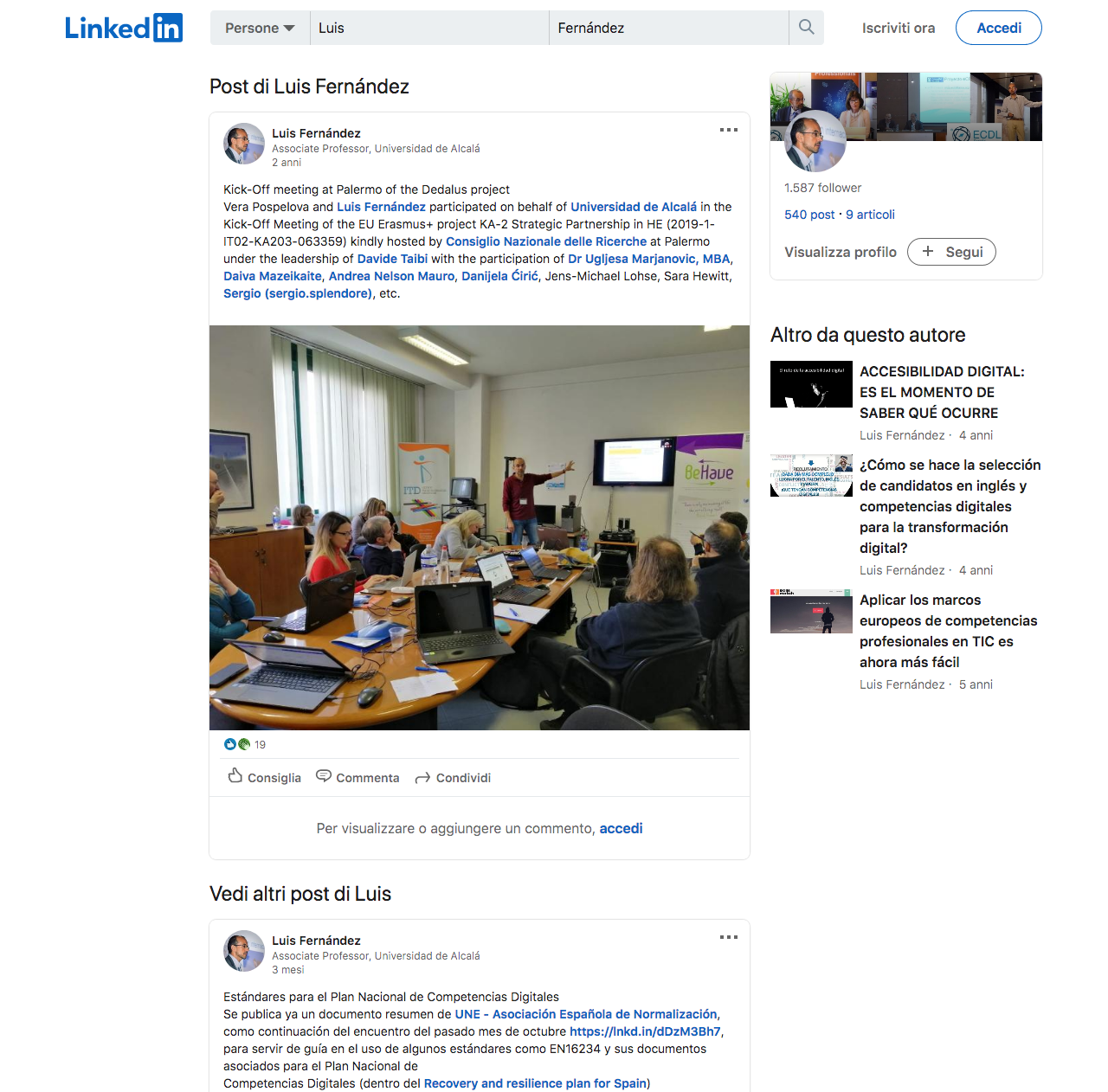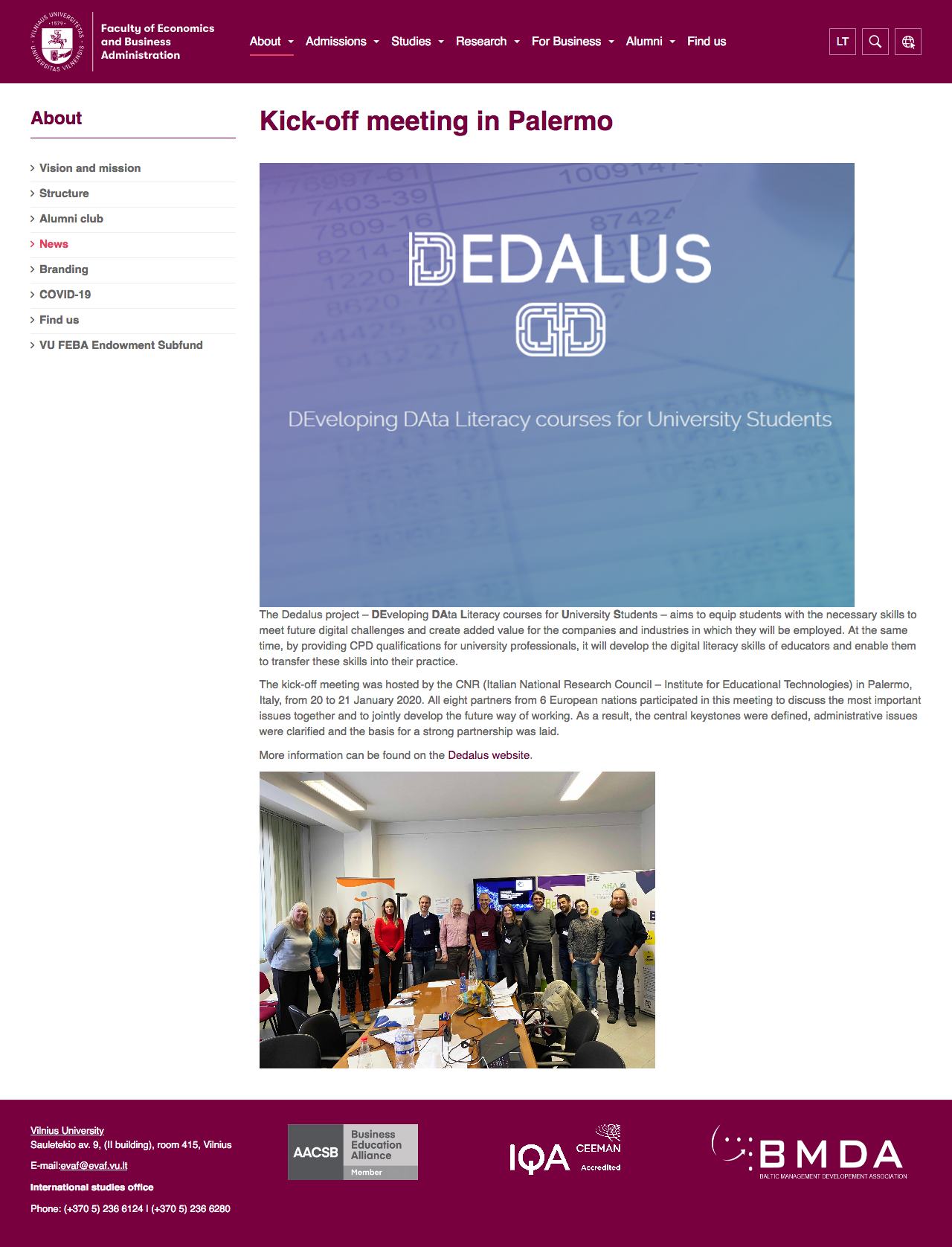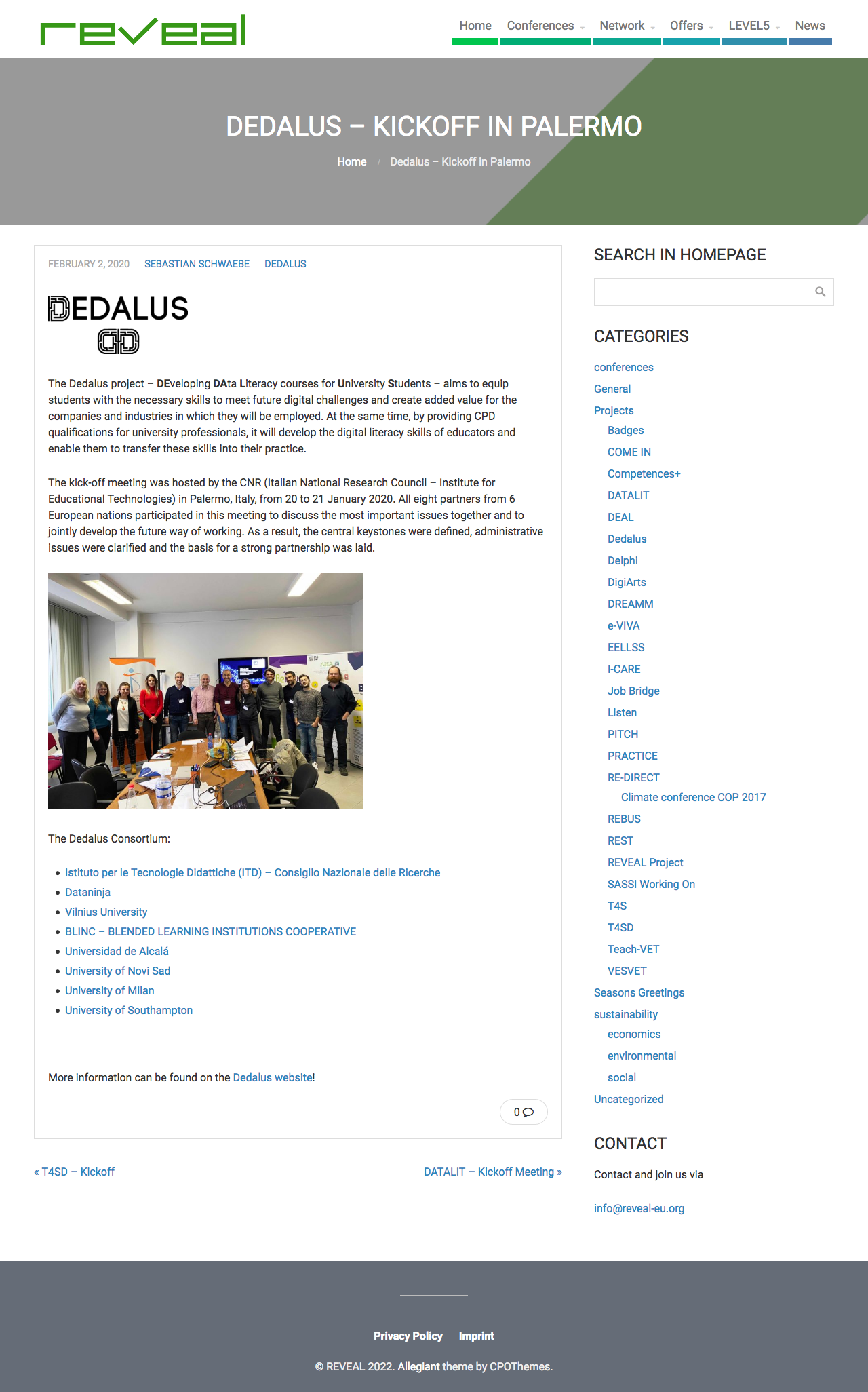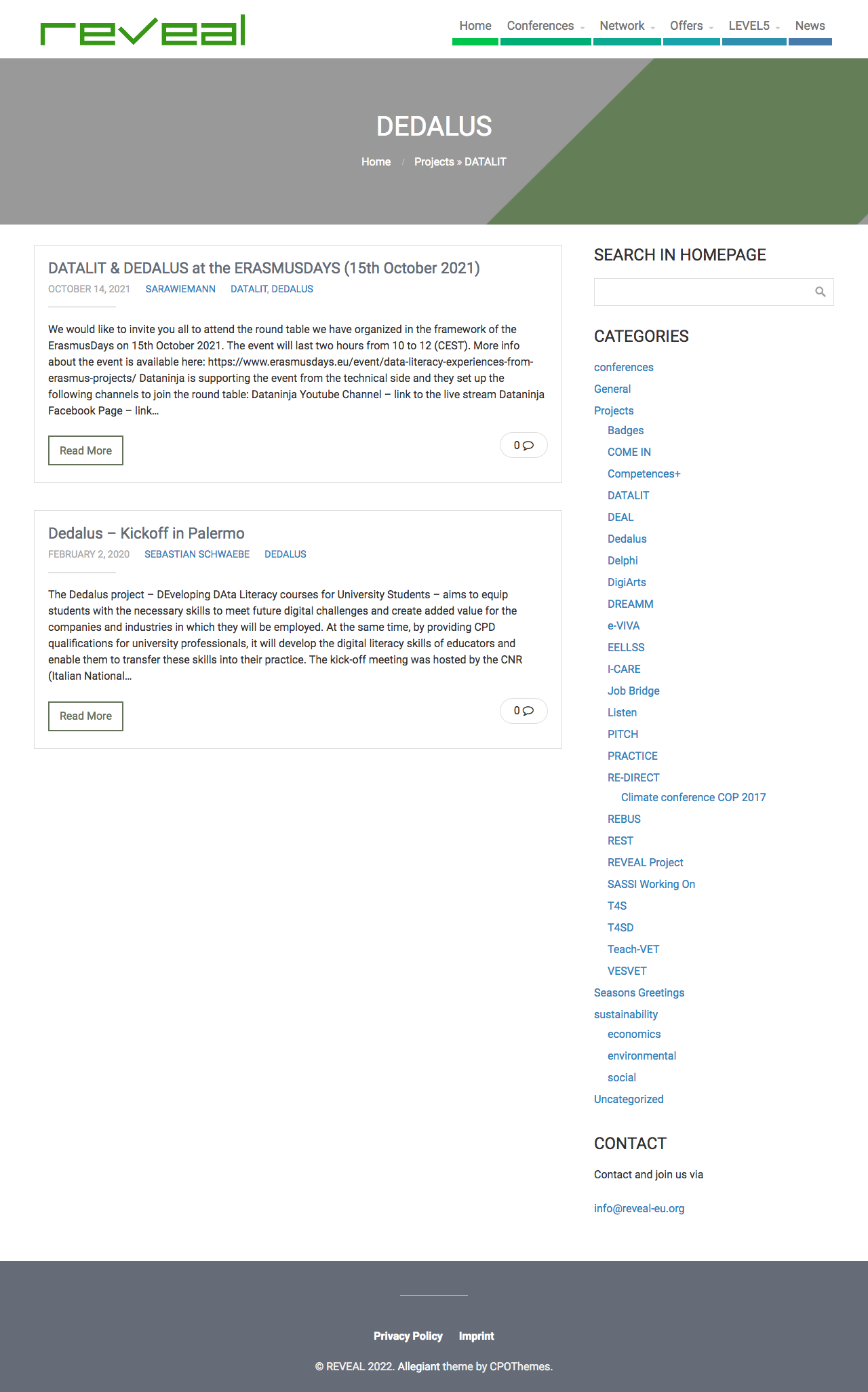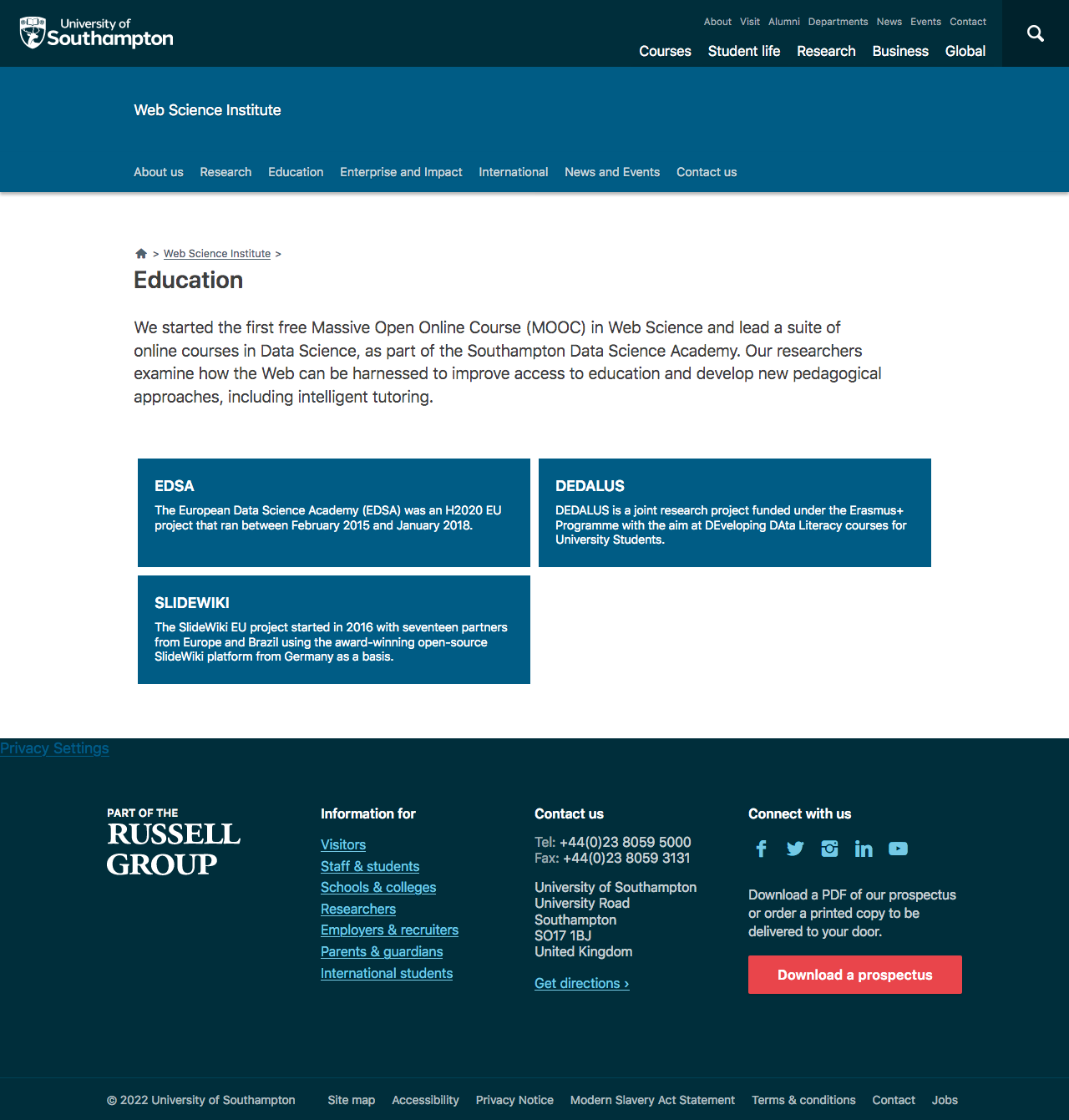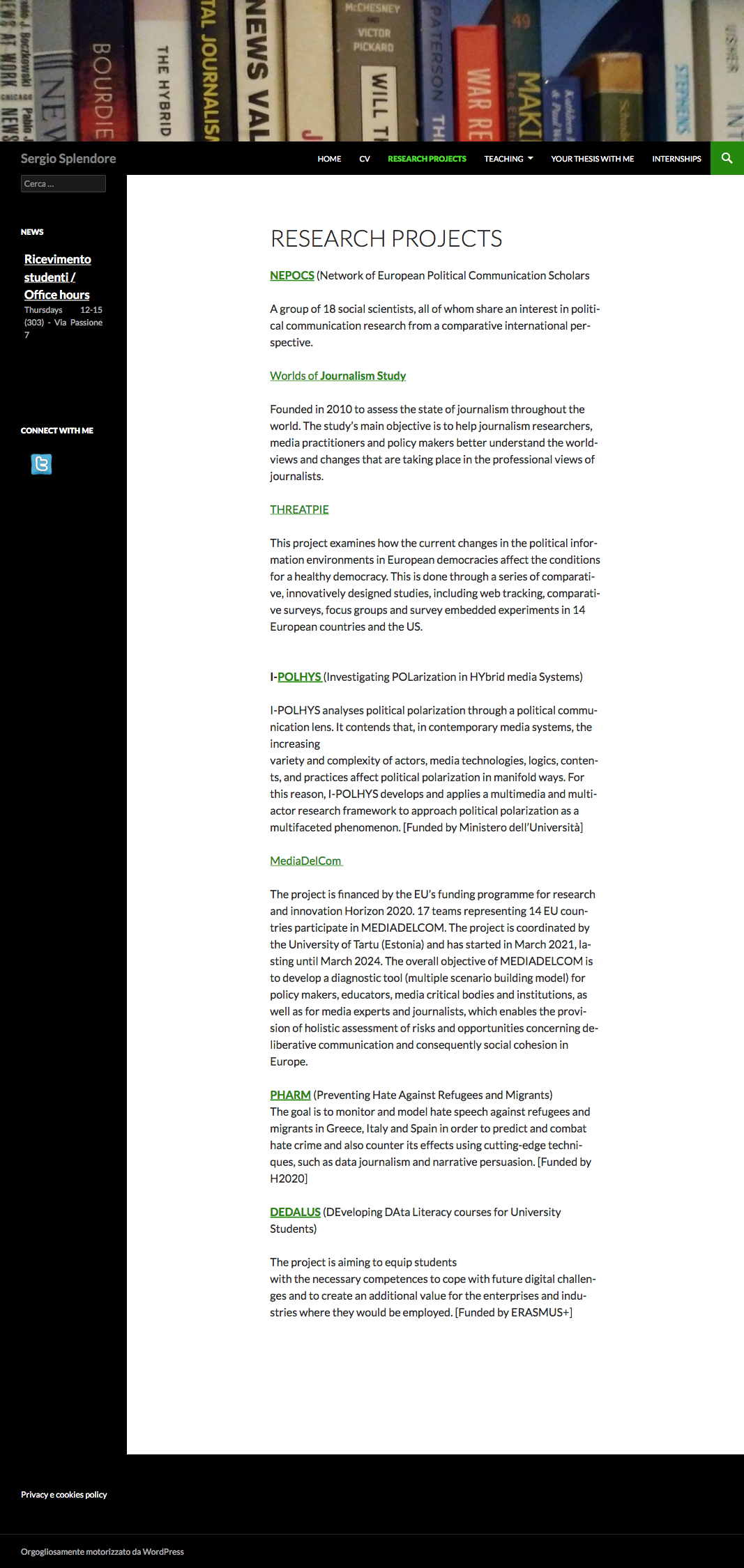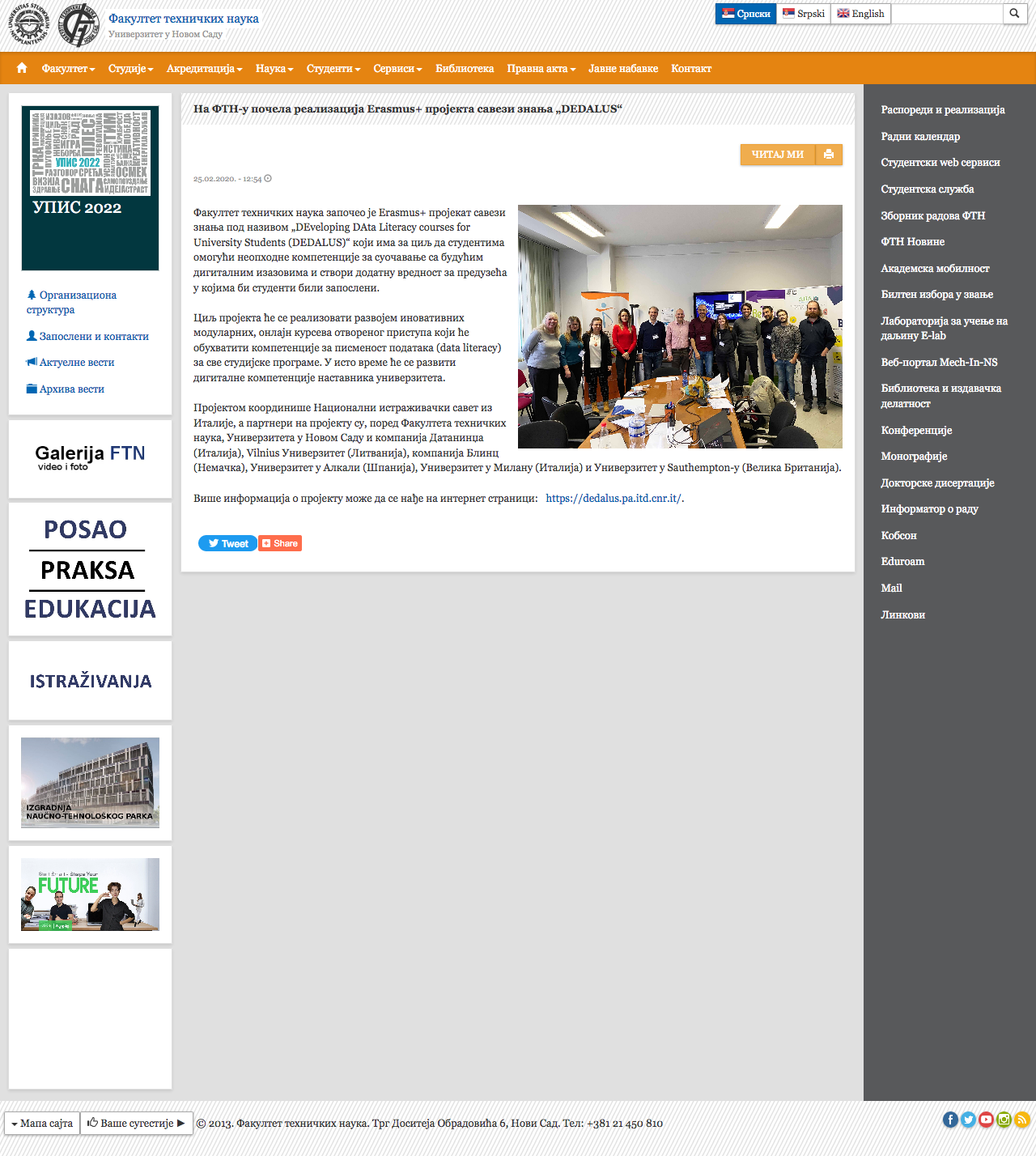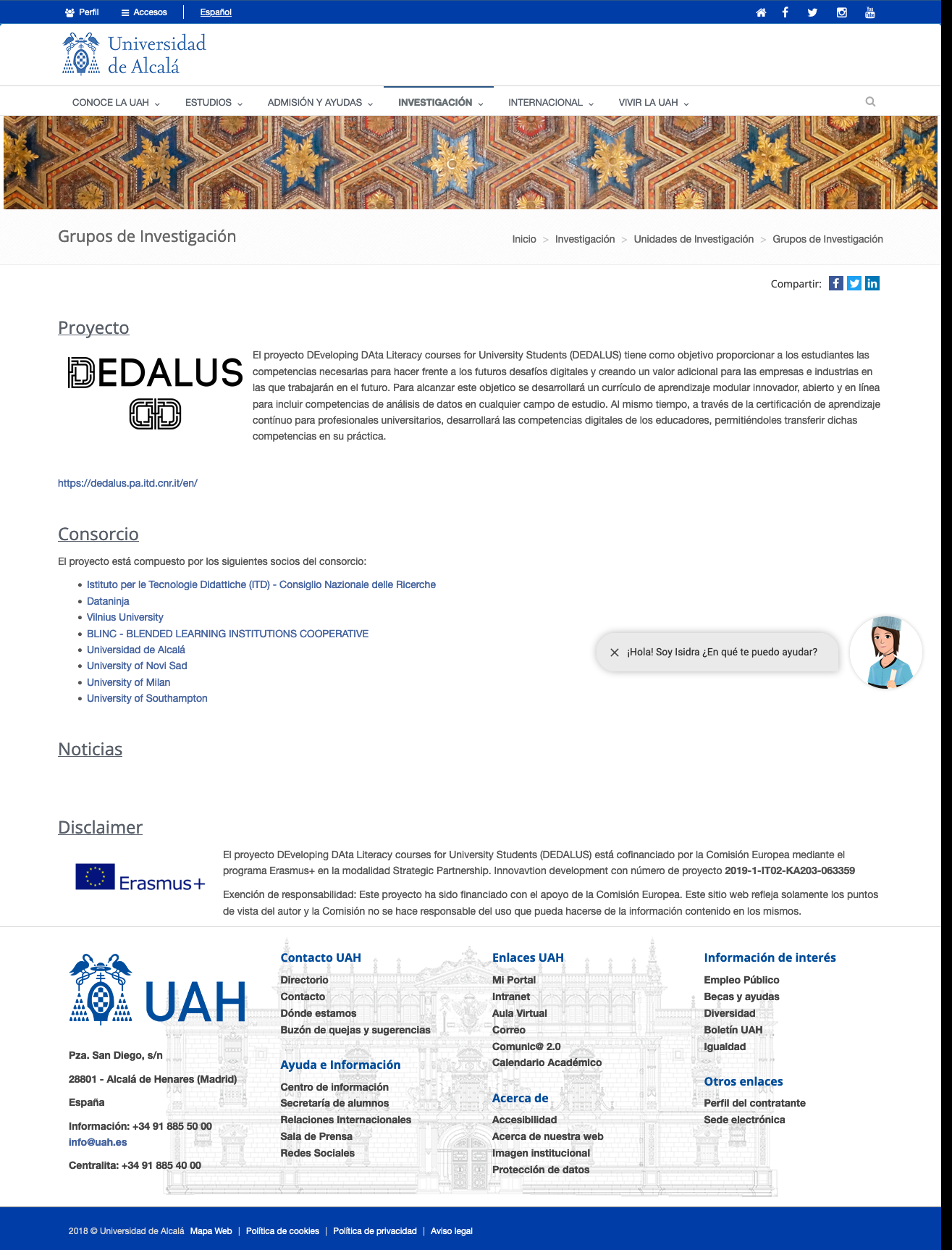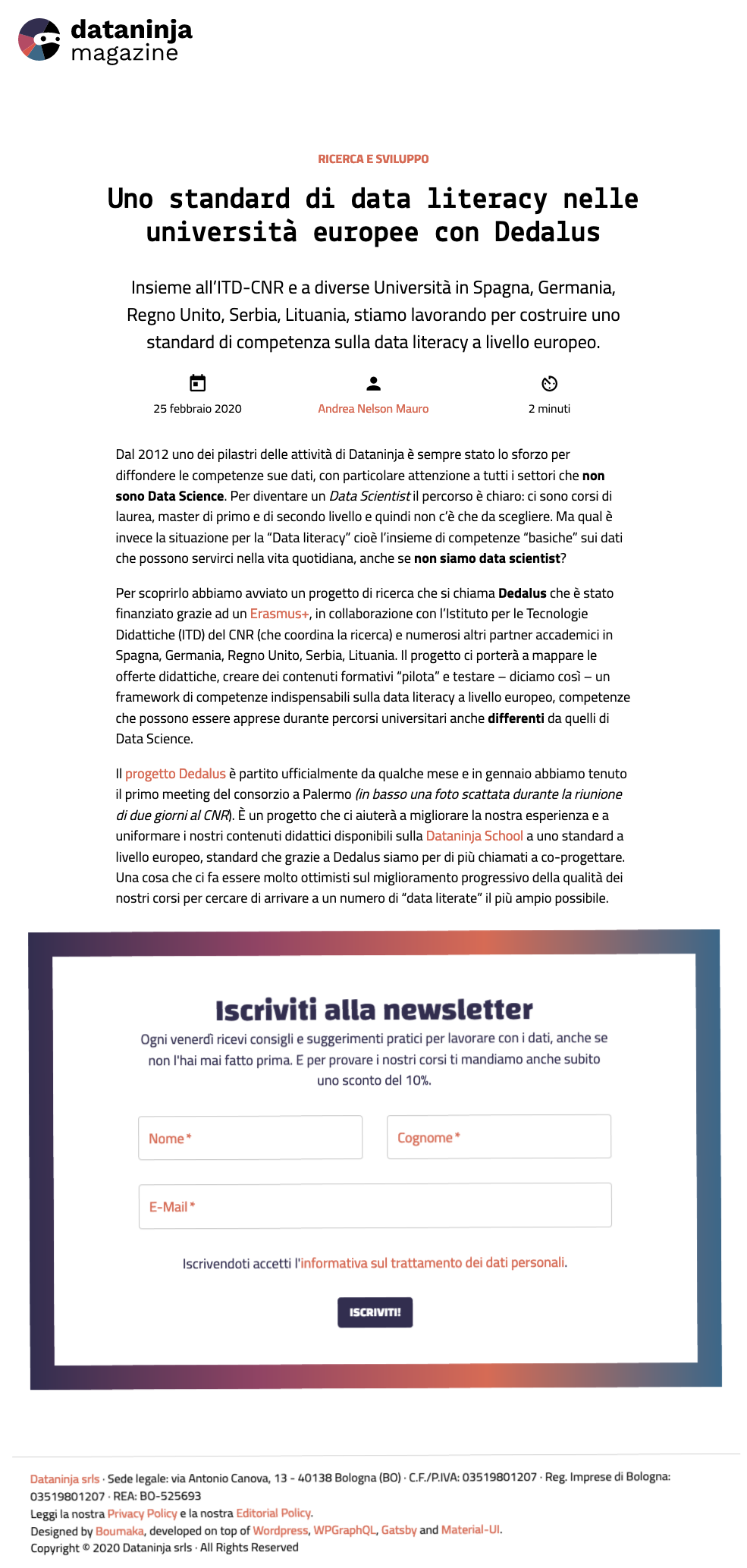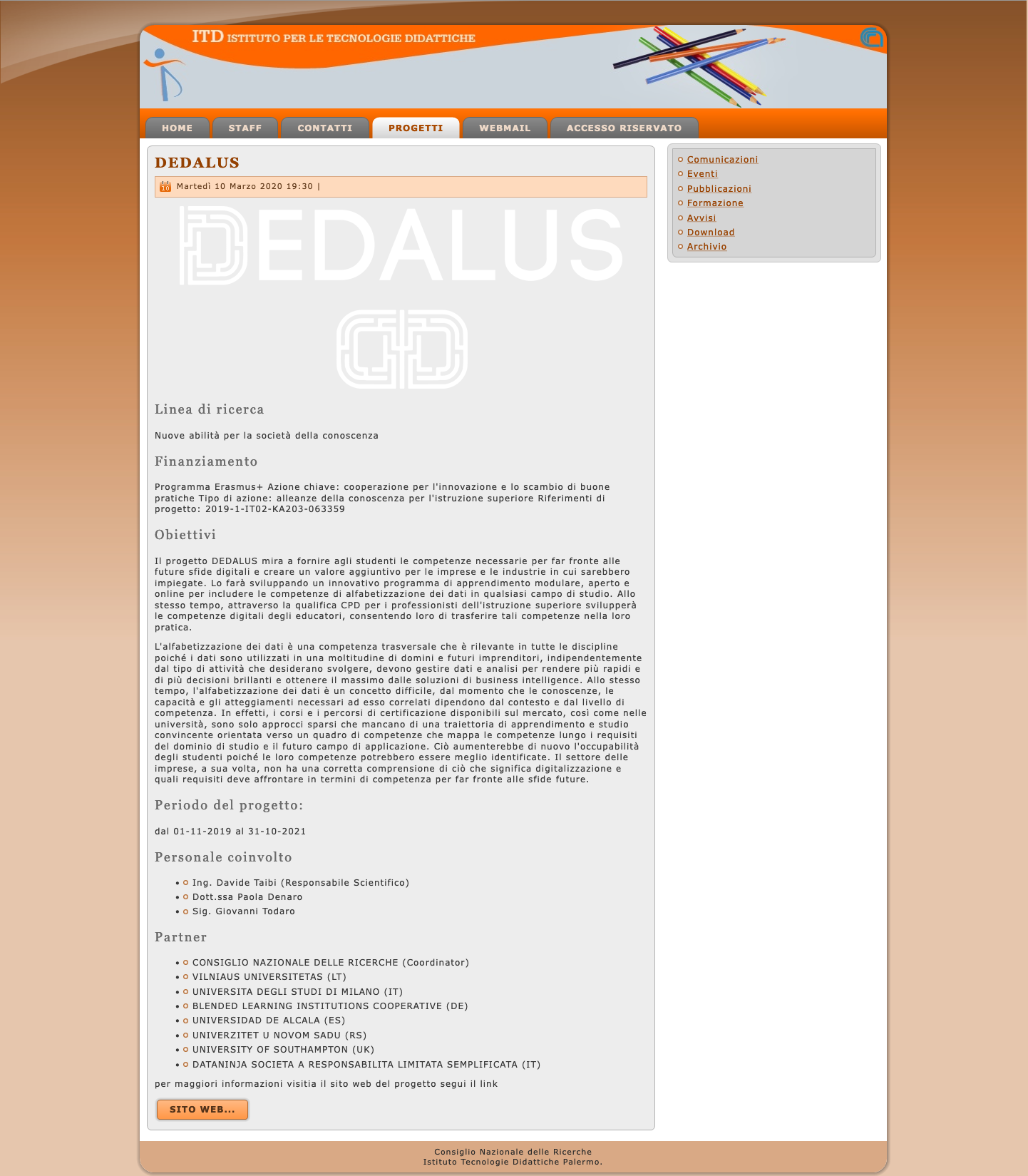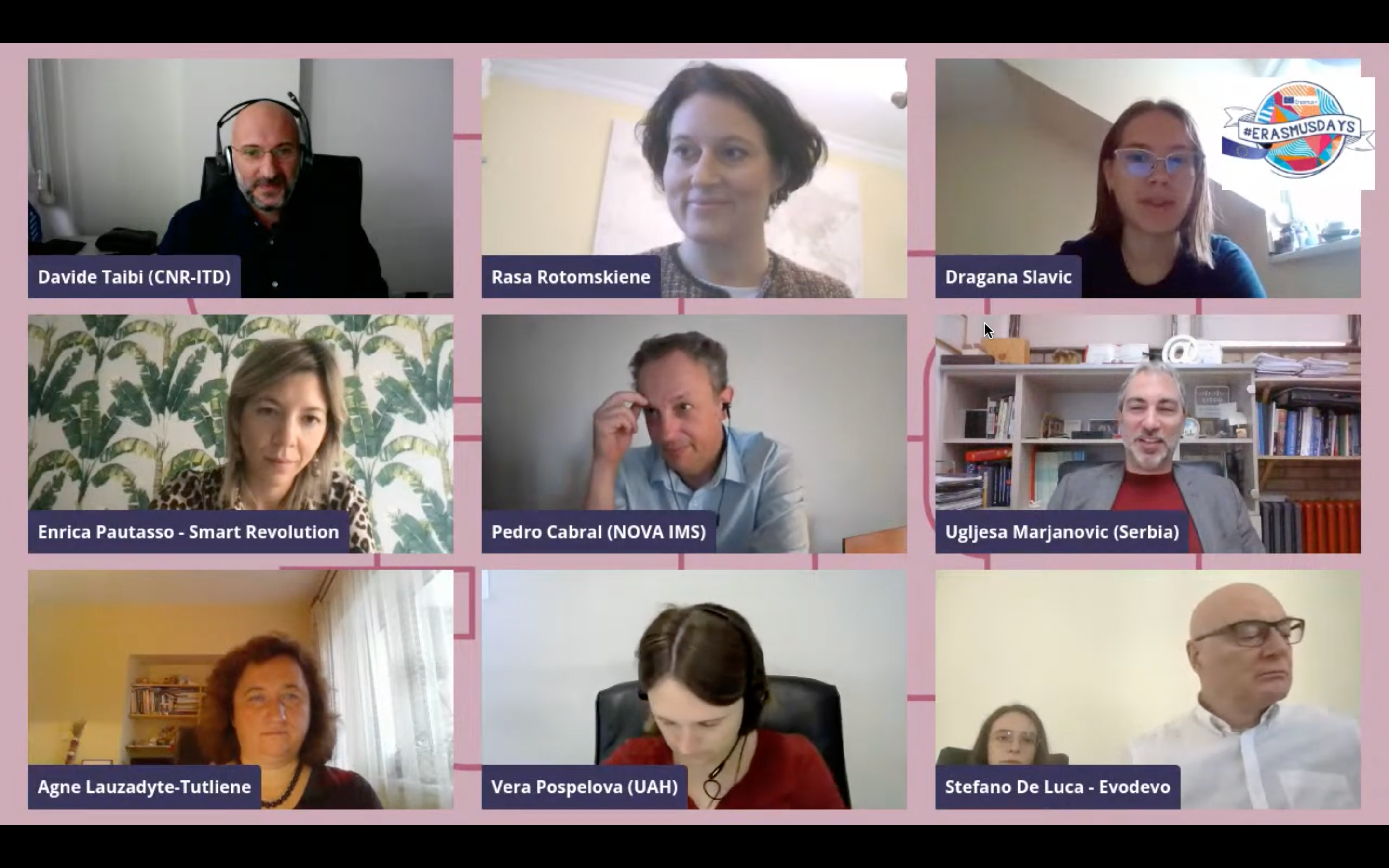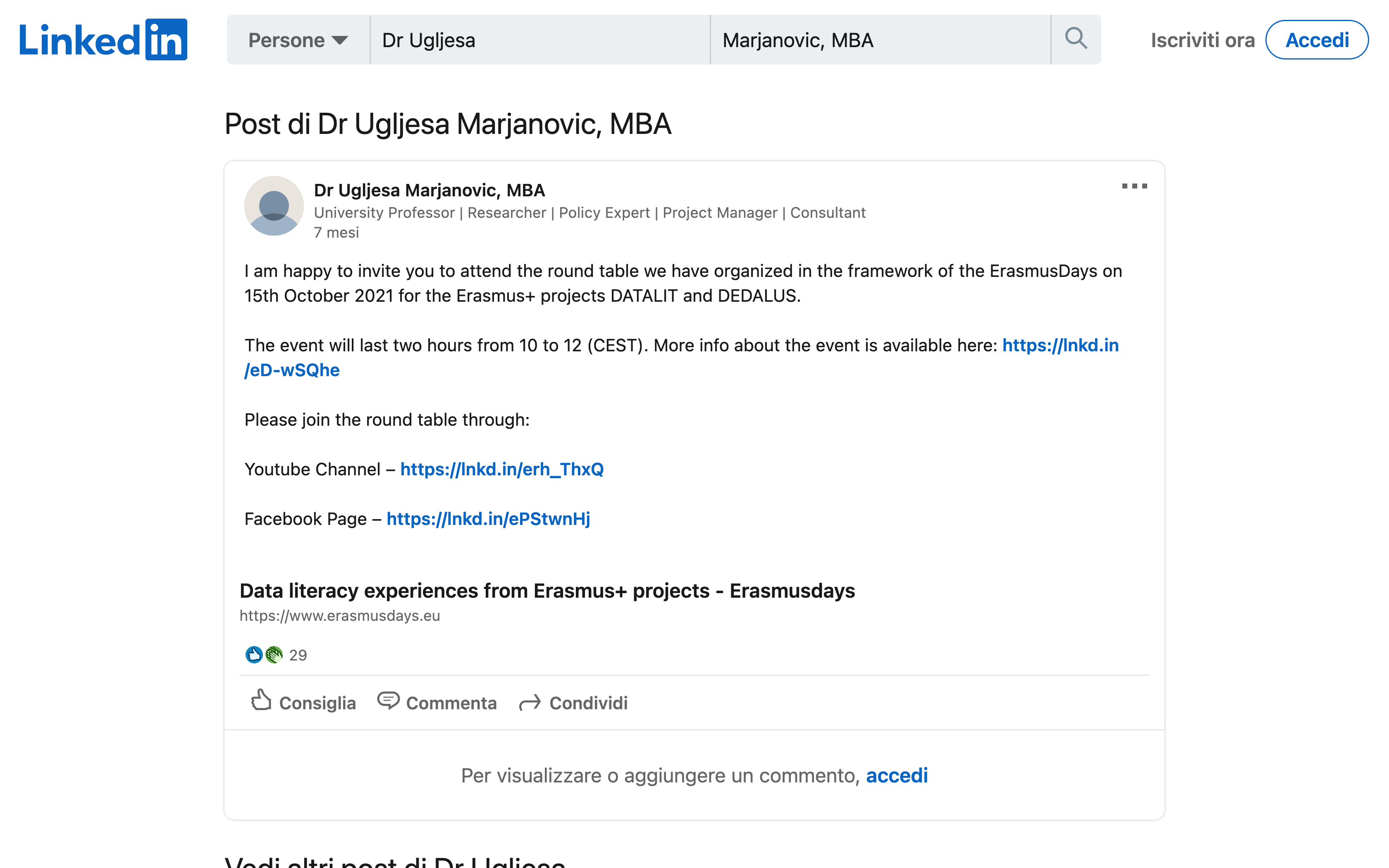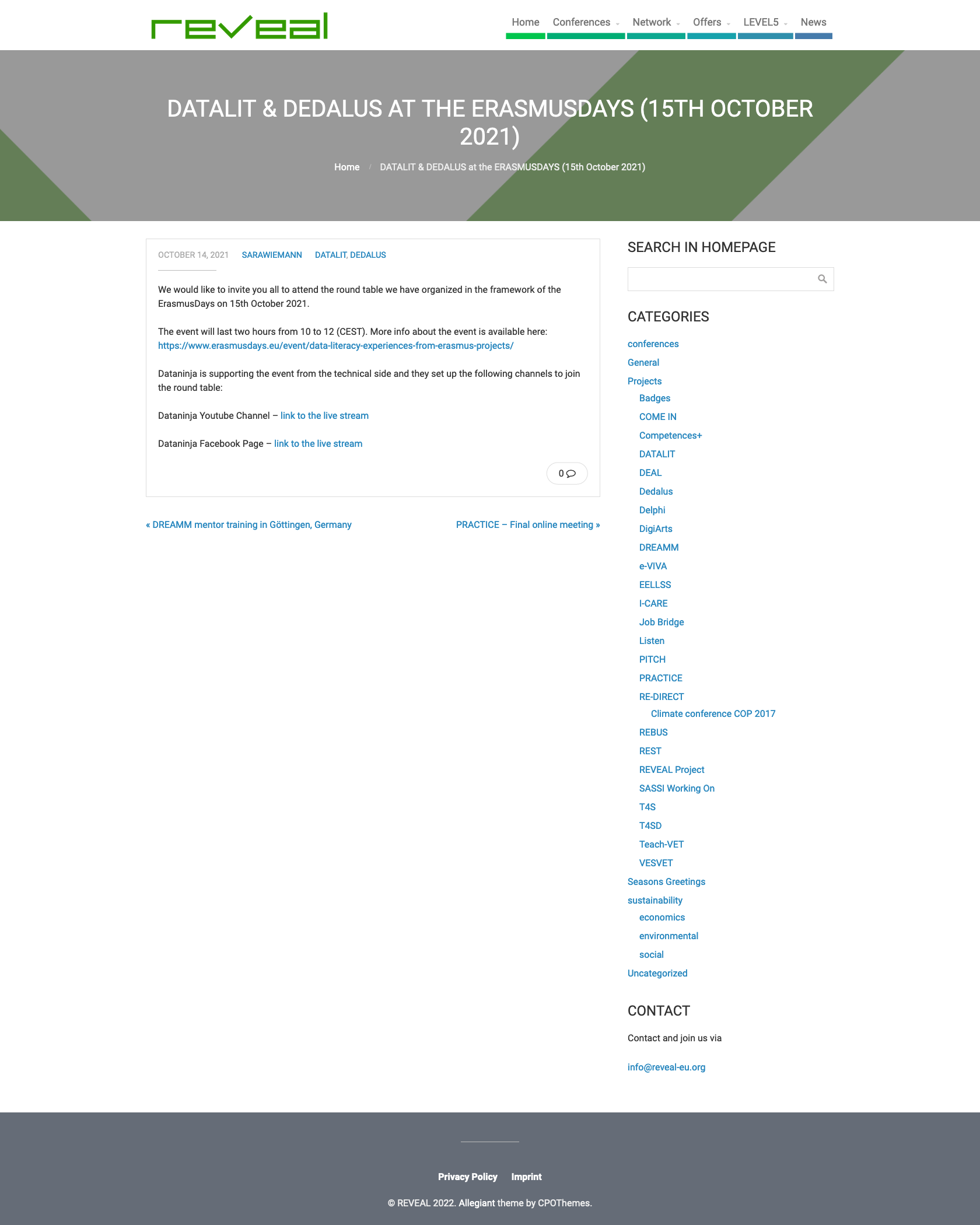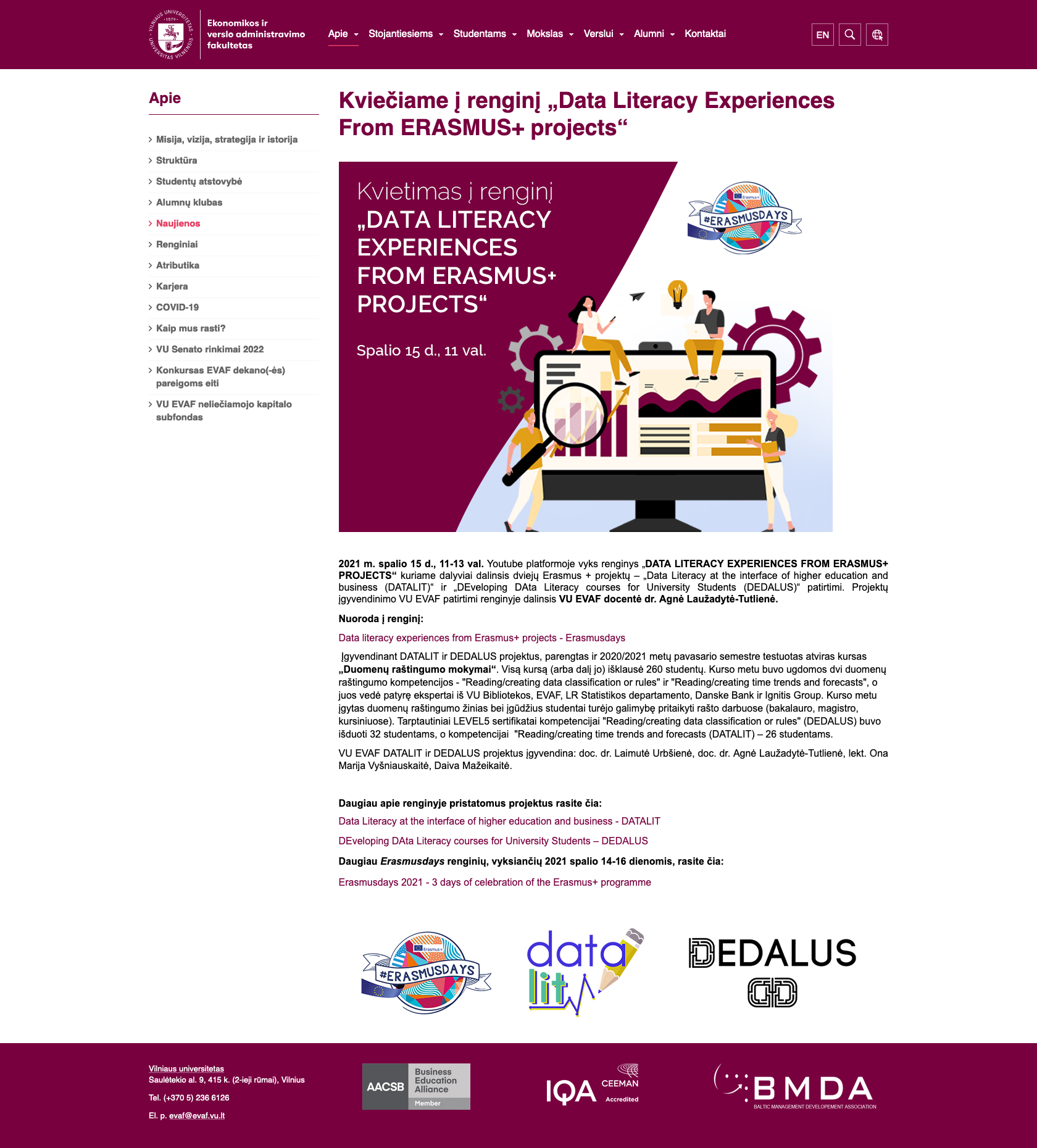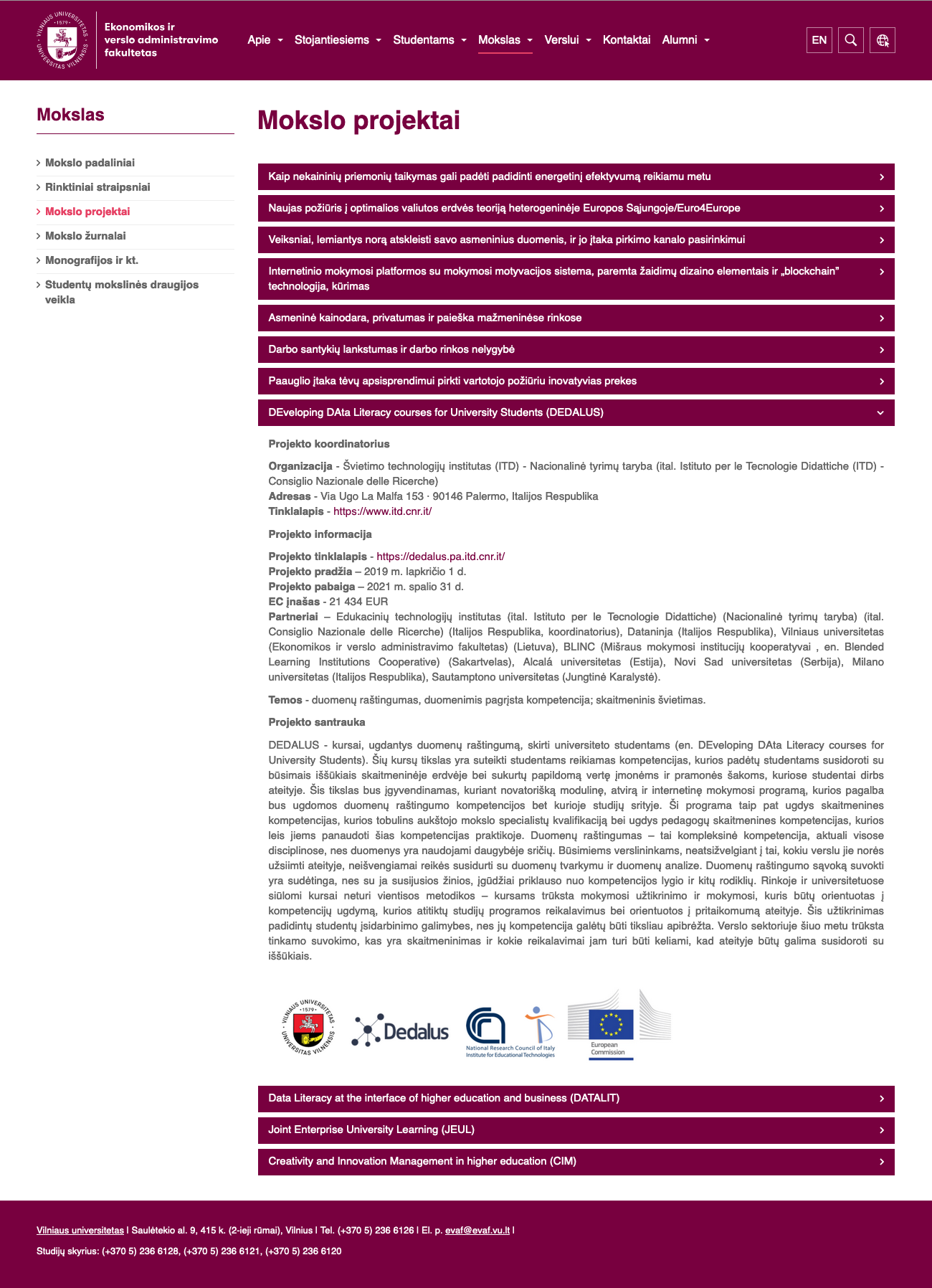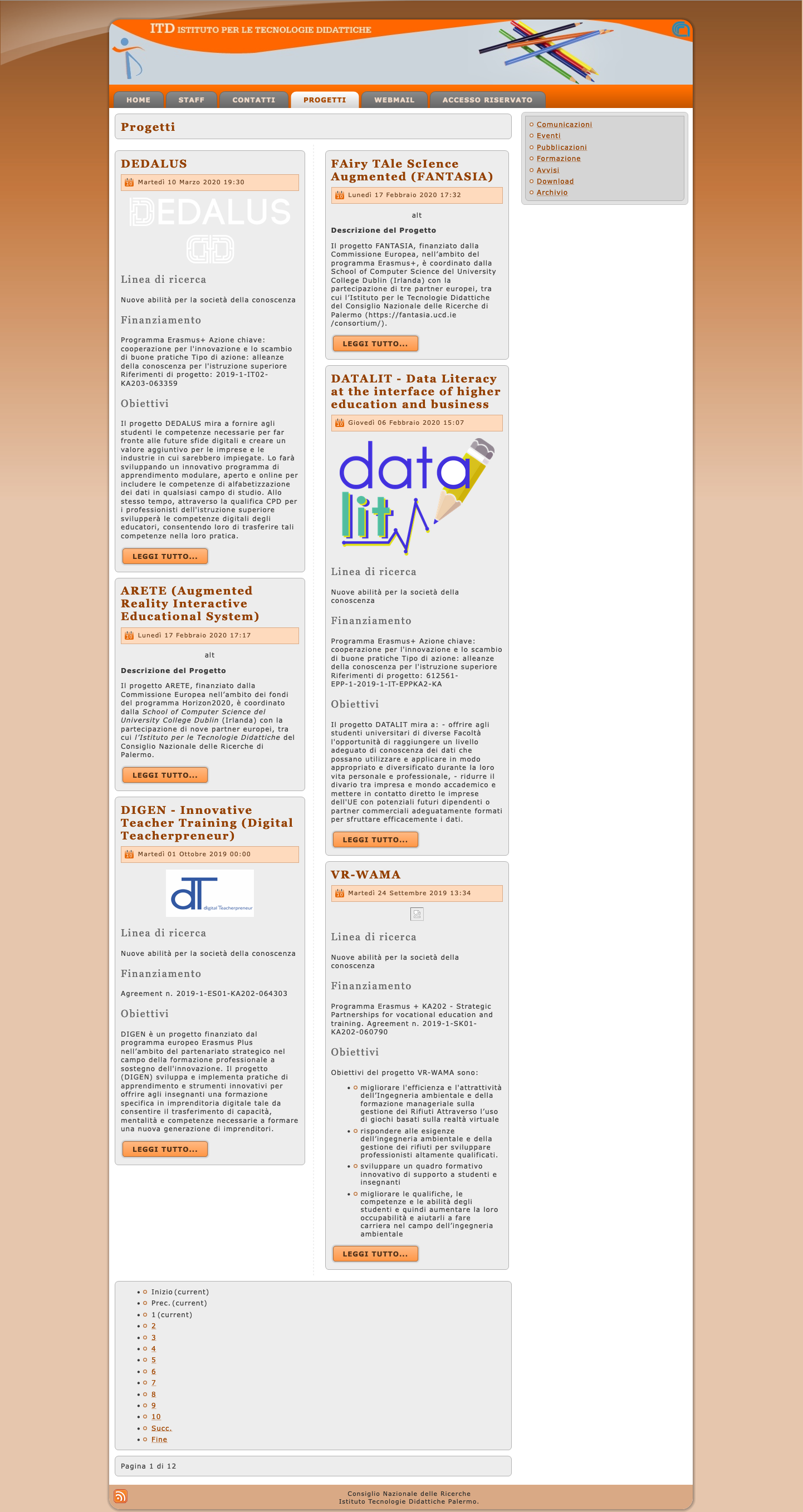Welcome to DEDALUS, a joint research project funded under the Erasmus+ Programme with the aim at DEveloping DAta Literacy courses for University Students
The project aims at equipping students with the necessary competences to cope with future digital challenges and to create an additional value for the enterprises and industries where they would be employed. It will do so by developing an innovative modular, open and online learning curriculum to include data literacy competences in any study field. At the same time, through the CPD qualification for HE professionals it will develop the digital competences of educators, enabling them to transfer such competences in their practice.
Research
We are managing a research on Data Literacy competences
Create
We will create a specific educational syllabus for data literacy courses
Assess
We will test courses where to acquire a specific data literacy certification.
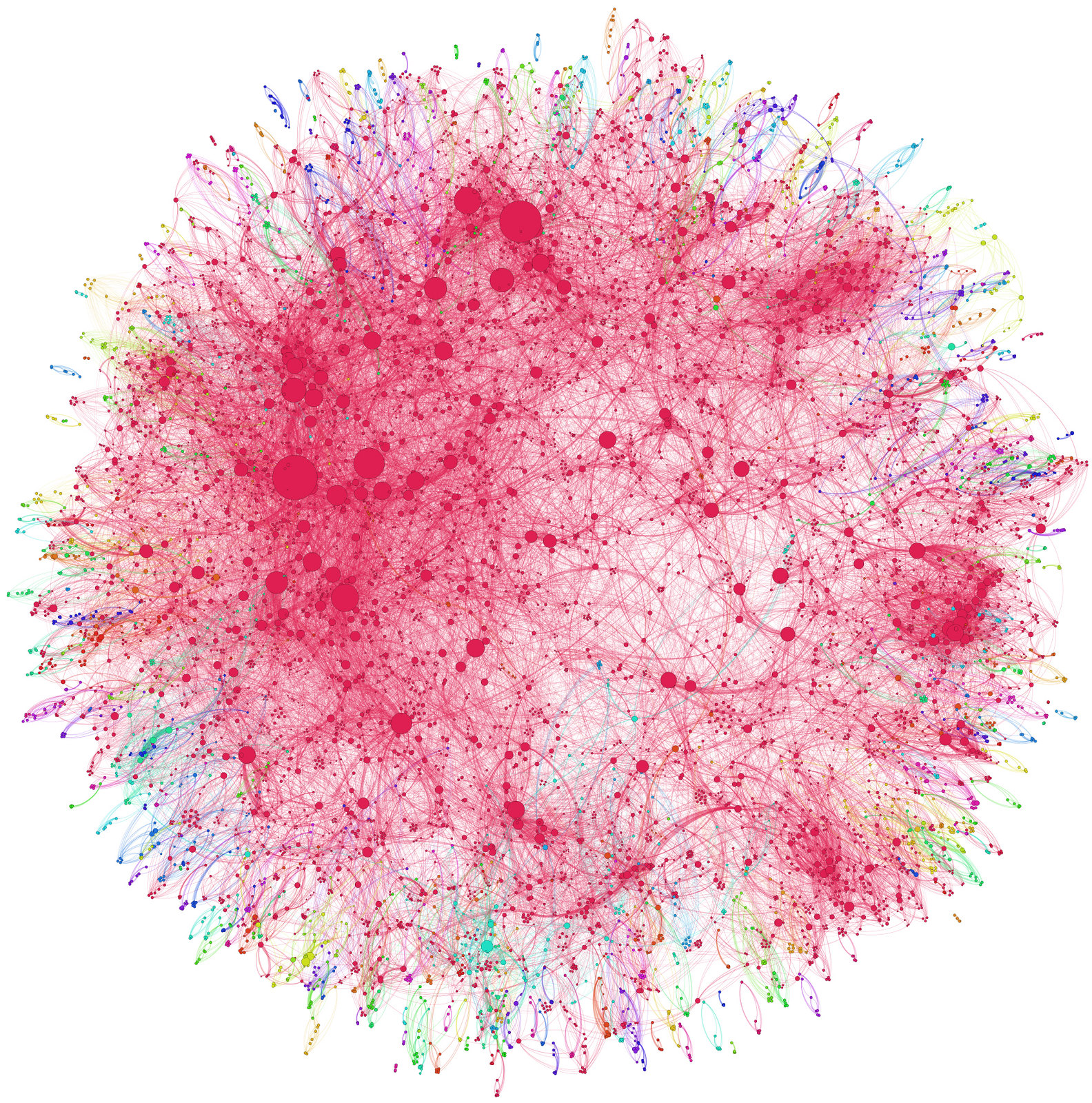

The idea behind the project
Nowadays society is data-driven, and data is considered the most valuable economic resource. Therefore, it is not surprising that in the last few years the data scientist has been considered the sexiest job of the 21th century. Acquiring skills in data science increases employability as well as opportunities to find a new job or improve working conditions. As a consequence, well-known universities (e.g. Harvard, ) and ICT big companies (such as IBM, SAS, and so on) have proposed specific courses and certification paths with the aim of developing skills and competences needed to become a data scientist. However, at present, these new learning opportunities have critical limitations that can be ascribed to the fact that:
A key point is the experimentation of the main outcomes of the proposal (syllabus, certification system and validation tool) at a large scale by involving education professionals in different sectors at European level. As concerning the target group, the levels of the Data Literacy profile are designed to address different aspects of the data literacy sphere at a different level of complexity. As an example, the basic profile can be specifically oriented to education professionals that operates in sectors in which the basic knowledge in data literacy is required (including secondary school students or lifelong learners interested in acquiring basic knowledge in data literacy).
